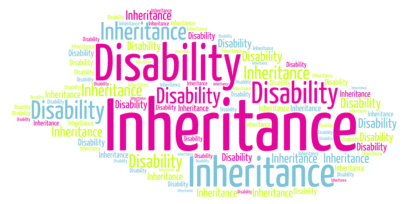[et_pb_section bb_built=”1″ fullwidth=”off” specialty=”off”][et_pb_row][et_pb_column type=”3_4″][et_pb_text _builder_version=”3.0.64″ background_layout=”light” text_orientation=”left” border_style=”solid”]
The Legal Intersection of Inheritance and Disability: A Primer
By Regina Kiperman and Naomi Levin
Published in NYSBA Elder and Special Needs Law Journal | Spring 2017 | Vol. 27 | No. 2
“Picture John. John has had a diffi cult life and, now that he is dead, will have a diffi cult estate to settle, due mostly to the composition of his family. John is survived by four siblings. One of John’s siblings is missing, the other in jail, the third (the nominated executor) was involved in a tragic accident and now has a court-appointed guardian of the person and property, and the fourth—the baby, if you will—happens to be 13. In short, John’s estate is a recipe for disability disaster.
Commencement of Proceeding
The first issue is who can commence this proceeding? Although the nominated executor is incapacitated, the nominated executor’s court-appointed guardian may commence the probate petition.1 (Incidentally, the court-appointed guardian would also be able to commence an administration proceeding if John had died intestate.2)
When an estate proceeding is commenced, the Surrogate’s Court must (i) acquire jurisdiction over all interested parties; and (ii) ensure that the rights of all interested parties are adequately protected. When an interested party is under a disability, the court takes certain precautions. A person under a disability is defi ned in New York Surrogate’s Court SCPA 103(40), and includes fi ve groups of people: (a) an infant, (b) an incompetent, (c) an incapacitated person, (d) unknown or whose whereabouts are unknown, or (e) confined as a prisoner who fails to appear under circumstances which the court fi nds are due to confi nement in a penal institution.
Read the rest of the article here
Additional resources provided by the author
For more information, please contact estate planning attorney Regina Kiperman:
Phone: 917-261-4514
Email: rkiperman@rklawny.com
Or visit her at her new location:
80 Maiden Lane
Suite 304
New York, NY 10038
This post is made available by the lawyer for educational purposes only as well as to give you general information and a general understanding of the law, not to provide specific legal advice. By using this site you understand that there is no attorney client relationship between you and the lawyer. The post should not be used as a substitute for competent legal advice from a licensed professional attorney in your state. ATTORNEY ADVERTISING.
[/et_pb_text][/et_pb_column][et_pb_column type=”1_4″][/et_pb_column][/et_pb_row][/et_pb_section]
